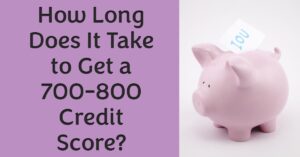Buying a house with no money down is possible, but it requires a good credit score. To buy a house with no money down, you typically need a credit score of at least 620. However, certain programs like FHA loans and VA loans allow for lower credit scores. FHA loans can accept a credit score as low as 500 with a higher down payment, while VA loans often require a credit score of 580.
Ultimately, a higher credit score improves your chances of securing a no-money-down mortgage and favorable loan terms. These no-money-down mortgage programs offer accessible pathways to homeownership, particularly advantageous for those with limited savings or facing financial constraints. Despite the lower credit score allowances, aiming for a higher credit score is beneficial, potentially yielding better loan terms and lower interest rates.
Types of No-Money-Down Mortgages
There are several types of no-money-down mortgages, each tailored to different borrower needs and circumstances:
1. Conventional Mortgage:
A conventional mortgage is not backed by the government, providing competitive interest rates and terms. To qualify for a no-money-down conventional mortgage, you'll typically need a credit score of at least 620 and a debt-to-income (DTI) ratio of no more than 43%.
2. FHA Loan:
FHA loans are backed by the Federal Housing Administration and offer more flexible qualifying guidelines compared to conventional mortgages. With an FHA loan, you can qualify with a credit score as low as 580, but you'll need to make a down payment of at least 3.5%.
3. USDA Loan:
USDA loans are backed by the United States Department of Agriculture and cater to borrowers in rural areas. To qualify for a USDA loan, you'll need a credit score of at least 640 and must meet specific income requirements.
4. VA Loan:
VA loans are exclusively available to veterans and service members. To qualify for a VA loan, you'll need a credit score of at least 580 and a certificate of eligibility from the Department of Veterans Affairs.
It's important to note that these are just minimum credit scores. Some lenders may require higher scores, especially for borrowers with other risk factors, such as a high debt-to-income ratio or a short credit history.
If you're not sure if you qualify for a no-money-down mortgage, it's a good idea to speak with a mortgage lender. They can assess your credit score and other financial factors to help you determine the best mortgage option for you.
The Minimum Credit Score Needed to Buy a House
The minimum credit score needed to buy a house can range from 500 to 700. This range varies depending on the type of mortgage loan and the lender.
For example, conventional loans require a minimum credit score of 620. However, it's important to note that lenders may have stricter requirements. In some cases, conventional lenders may require a credit score of 780 or higher to qualify for the lowest mortgage interest rates.
Lenders view your credit score as a risk indicator. Higher credit ratings are preferred by lenders, as they suggest a lower risk of default. A higher credit score can help you secure the lowest available interest rate, ultimately saving you a significant amount over the term of your loan.
What is a No-Money-Down Mortgage?
A no-money-down mortgage is a type of home loan that enables you to purchase a house without making an upfront down payment, providing a pathway to homeownership without the need for significant initial cash reserves. This option is particularly appealing to first-time homebuyers or individuals with limited savings, as it removes a substantial financial barrier to entry into the real estate market.
Key Features:
1. No Down Payment: Unlike traditional mortgages that typically require a down payment, a no-money-down mortgage allows you to secure a home loan without putting any money down upfront. This is a significant advantage for those who may not have substantial savings to cover a down payment.
2. Financing the Entire Purchase Price: With this type of mortgage, you can finance the entire purchase price of the home, including the down payment amount, which is effectively zero. The lender covers the full cost of the property, making homeownership more accessible.
3. Increased Accessibility: No-money-down mortgages enhance accessibility to the housing market, enabling a broader range of individuals to achieve their goal of owning a home. This is especially beneficial for individuals who are financially stable in terms of income but may not have saved enough for a down payment.
Considerations:
While no-money-down mortgages offer distinct advantages, it's essential to consider some factors. Generally, these mortgages may have higher interest rates compared to traditional loans due to the increased risk for lenders. Additionally, you might need to meet specific credit score requirements to qualify for such mortgages.
Benefits of a No-Money-Down Mortgage
A no-money-down mortgage offers several compelling advantages, making it an attractive option for prospective homebuyers looking to step into the real estate market without the burden of a substantial upfront payment.
1. Lower Upfront Costs:
One of the most prominent benefits of a no-money-down mortgage is the elimination of the need for a down payment. Accumulating enough funds for a down payment can be a significant financial hurdle for many individuals aspiring to purchase a home. With this type of mortgage, you can bypass this obstacle, making homeownership immediately more achievable and accessible.
2. Easier Qualification:
No-money-down mortgages often come with less stringent qualifying requirements compared to traditional mortgages. This is particularly advantageous for individuals who may not meet the strict financial criteria of a conventional loan. The reduced emphasis on a down payment allows a broader range of individuals to qualify, expanding the pool of potential homebuyers.
3. More Affordable Monthly Payments:
By eliminating the need for a down payment, monthly mortgage payments become more affordable. The traditional down payment is usually a substantial lump sum that significantly influences the size of monthly payments. With a no-money-down mortgage, your monthly financial commitment is notably lower, providing financial relief and making homeownership a feasible prospect.
Drawbacks of a No-Money-Down Mortgage
While no-money-down mortgages offer accessibility, they come with drawbacks that should be considered before opting for this type of loan:
1. Higher Interest Rates:
No-money-down mortgages generally come with higher interest rates compared to traditional mortgages. The increased risk for lenders due to the lack of a down payment often translates to higher interest, impacting the overall cost of the loan over its term.
2. Private Mortgage Insurance (PMI):
If you do not make a down payment of at least 20%, you will likely be required to pay Private Mortgage Insurance (PMI). PMI is an additional monthly insurance premium that protects the lender in the event of a loan default. This adds to your monthly housing expenses, making the overall cost of homeownership higher.
3. Less Equity in Your Home:
Without a down payment, you'll have less equity in your home initially. Equity is the difference between the market value of your home and the outstanding mortgage balance. With a lower equity, you may have reduced financial flexibility when it comes to selling your home or borrowing against it. Having less equity limits your ability to leverage your home for future financial needs.
Tips for Buying a House with No Money Down
Buying a house with no money down requires careful planning and financial considerations. Here are some valuable tips to enhance your chances of a successful no-money-down home purchase:
1. Get Pre-approved for a Mortgage:
Before you start house hunting, get pre-approved for a mortgage. This step helps you understand your financial limits and provides a competitive advantage in the home-buying process. It shows sellers that you are a serious buyer and have the financial capacity to make the purchase.
2. Consider a Less Expensive Home:
Opt for a more affordable home to lower your monthly mortgage payments. This will not only ease the qualification process but also reduce the financial strain associated with homeownership. Assess your needs and prioritize essentials to find a home that fits your budget comfortably.
3. Save for Closing Costs:
Although you're not putting money down for a down payment, you'll still need to cover closing costs, which typically range from 2% to 5% of the purchase price of the home. Saving up for these costs demonstrates your commitment and financial readiness to the lender, improving your likelihood of securing the loan.
Buying a house with no money down is an excellent route to homeownership, but it's crucial to research thoroughly and understand the specific requirements associated with this type of mortgage. By following these tips, you can enhance your eligibility and set yourself on the path to successfully qualify for a no-money-down mortgage.
Read More:
- Does Wells Fargo Offer Home Loans with a 500 Credit Score?
- First Time Home Buyer Loans with Bad Credit and Zero Down
- Who Qualifies for Kamala Harris' $25,000 Homebuyer Program?
- Biden Administration's Bold Move for Affordable Housing Plan
- Biden's Student Debt Relief Plan: A Beacon of Hope for Borrowers
- FHA Mortgage Rates by Credit Score: 620, 700, 580, 640
- How Long Does It Take to Get a 700-800 Credit Score?
- How To Improve Your FICO Credit Score: A Guide
- FHA Credit Score Requirements for Homeownership
- 10 Proven Methods to Elevate Your FICO Credit Score
- Mortgages for Low Credit Scores: Your Complete Guide



